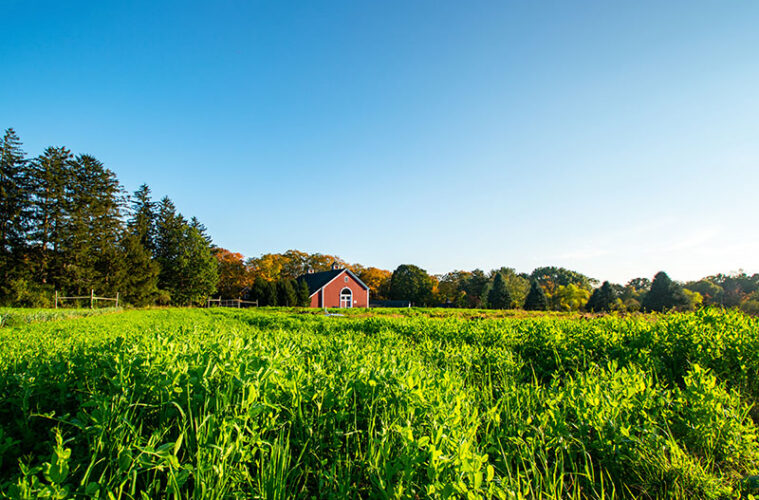Daniela Aldrich fell in love with the agricultural life when she worked on her school farm as an environmental studies major at Dickinson College. After graduation, she apprenticed at a farm in central Massachusetts, then took a job with Somerville’s Green City Growers, tending to gardens at schools and even atop Fenway Park. She liked the work, but she couldn’t shake the feeling that she wanted her own farm.
So in fall of 2020, she signed up for a farm business planning course with the New Entry Sustainable Farming Project, a program of Tufts University’s Friedman School. When the class was over, she applied for a quarter-acre plot on the program’s shared farmland in Beverly, and launched Dancing Harvest Farm. The chance to work the land on the North Shore has meant everything for her nascent business, Aldrich says.

“Land is so hard to find, especially in eastern Massachusetts, that is just so huge,” she says. “Just the fact that I have this space for three years to really experiment and try things out and launch Dancing Harvest Farm with a little bit of a safety net.”
Aldrich’s tale is exactly the kind of story New Entry is trying to write. Since the organization began in 1998, its mission has been to train and support aspiring farmers. Initially, it focused on helping immigrants and refugees get a foothold in the agricultural business in Massachusetts. About 10 years in, though, New Entry expanded its mission to included beginner farmers of all backgrounds, with the goal of bolstering the local food system.
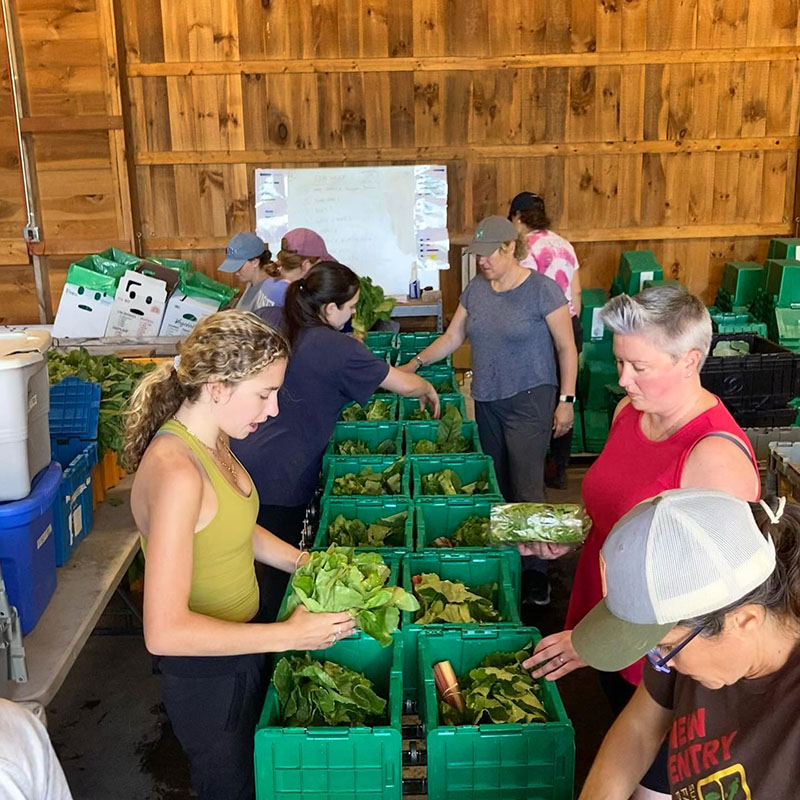
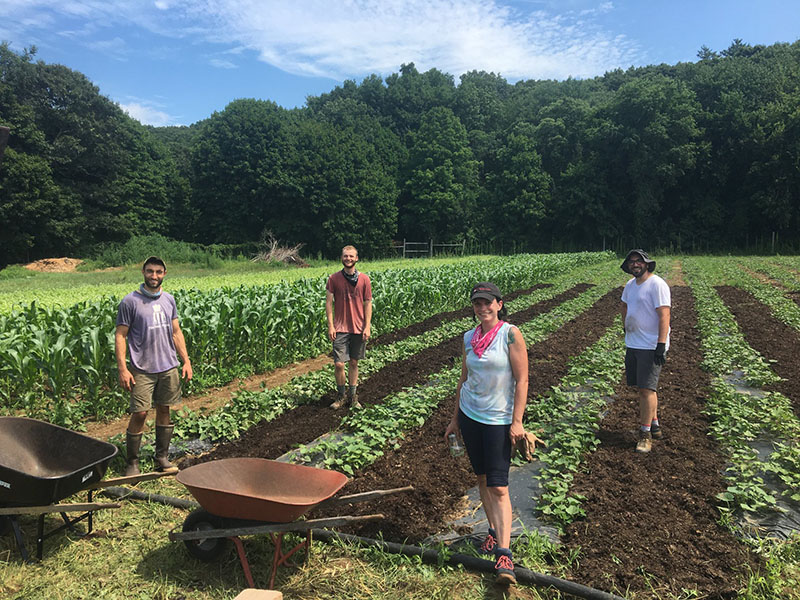
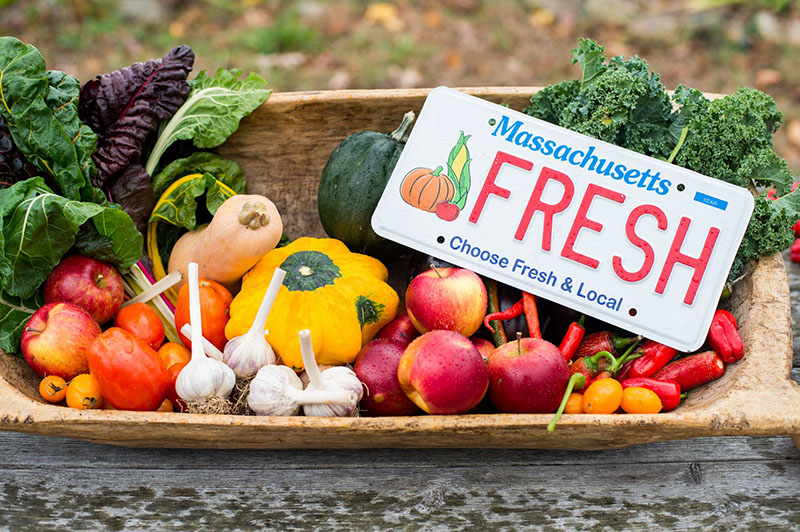
Local agriculture can mitigate climate change by lowering the amount of fuel needed to transport and chill produce. It can strengthen local economies by keeping money in the community. And it helps keep the food system resilient, says New Entry director Jennifer Hashley, noting the many food shortages experienced when the COVID pandemic caused problems in national supply chains.
“That’s just really scary when you think about it,” she says. “We just take for granted that the food will be there.”
In the years since this shift in focus, the organization has been continually evolving, adjusting its programming and services, and farming different plots of lands, working mostly in and around Lowell. After years searching for a more centralized and permanent location, they landed in 2019 in Beverly, on a 20-acre plot at the historic Moraine Farm. Today, from this new headquarters, New Entry pursues its mission by offering training courses, providing land new farmers can use to launch their businesses, and operating a food hub that gives growers access to a steady market for their harvests.
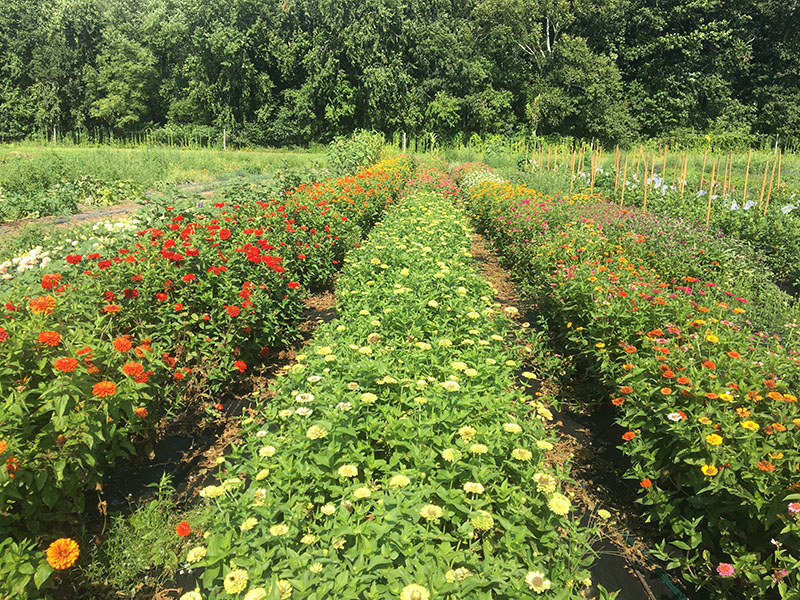
For those in the early stages of their agricultural aspirations, the organization regularly runs a free, online introductory course that discusses the basics of small farming and gives participants some tools for considering whether they want to move forward. Future farmers who decide to keep pursuing their dream can then move on to hands-on crop production training at the Beverly farm and a business plan course that will help them figure out how to make their ideas work financially.
Upon completion of these training elements, new farmers can apply for a quarter-acre plot on the Beverly land where they can spend three years starting to put their plan into action. In Massachusetts—especially the more densely populated eastern part of the state—farmland can be hard to find and costly to acquire. The chance to work land at New Entry, therefore, helps eliminate a major obstacle new growers often face.
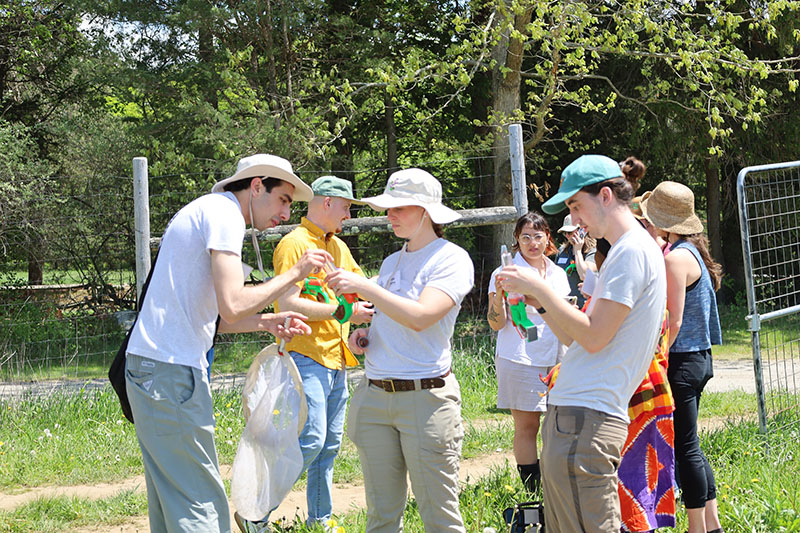
“They’re not going out and searching for land and building up their infrastructure,” Hashley says. “They can really get started from scratch without a huge up-front investment.”
New Entry provides participating farm businesses—13 last year, nine this year—with a range of equipment and facilities including tools, deer fencing, greenhouses for starting seeds, access to irrigation and electricity, storage space, and produce washing stations. Farm manager Leah Jurman offers expertise and practical assistance to participating farmers.
“She’s a priceless resource,” Aldrich says. “She’s an incredible fountain of farming knowledge and wisdom.”
Also located at the Beverly farm is the food hub, which acts as a middleman between new farmers and customers looking for more produce than a small start-up could guarantee. The system allows buyers to get fresh, local produce while giving young businesses a steady stream of revenue during the often-uncertain early days of operations. The food hub aggregates products from participating growers and sells it through a CSA subscription program and to area school districts. It also runs a food access program that partners with nonprofits and donors to provide free or discounted produce to seniors and organizations feeding low-income communities.
Moving forward, New Entry has plans for new facilities, including a climate-friendly greenhouse warmed using the heat trapped in the earth. Hashley is also hoping to develop a coalition of mobile farmers markets to support their work bringing locally grown food to people with less access to local produce. There also plans in the works to develop a certificate program in sustainable food production with a local community college.
But whatever New Entry plans, the importance of local food will be at the heart of every choice. “We need more people to be growing food and producing locally and stewarding our land,” Hashley says.

